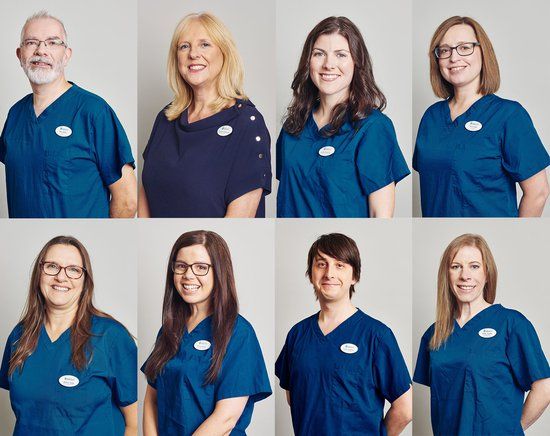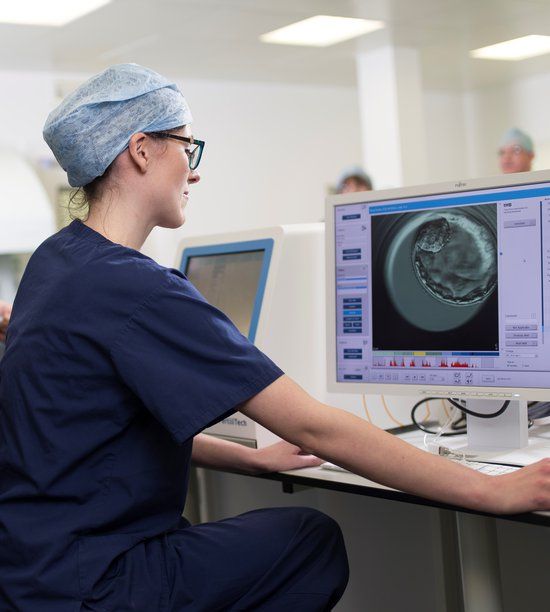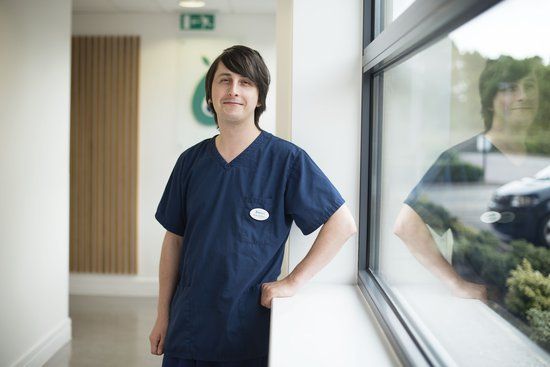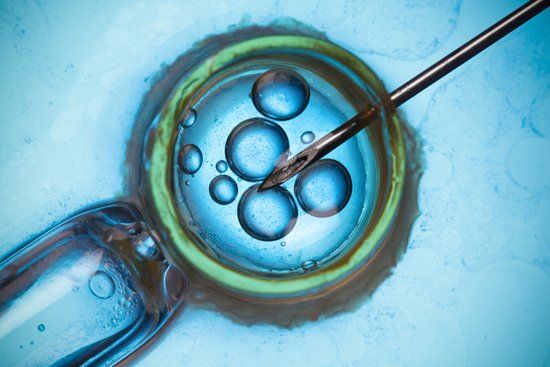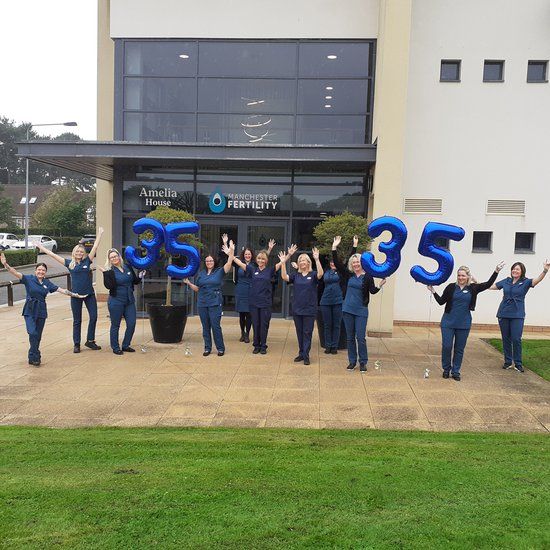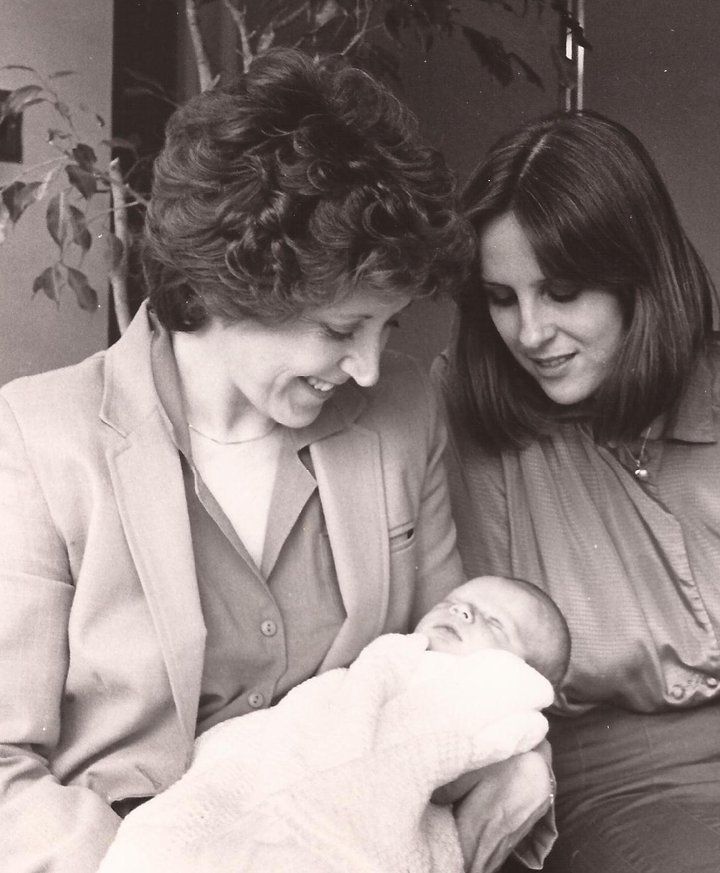
On 25 July, 1978, the world’s first IVF baby was born. And on 3 April, 1987 – less than 10 years later – we celebrated the birth of very our own first IVF baby at Manchester Fertility.
Our Lead Embryologist, Dr Debbie Falconer, was the embryologist responsible. And since then, over the past 30 years, she’s helped a further 5,000 more babies into the world.
For National Fertility Awareness Week’s ‘IVF is 40’ celebration, Debbie reveals more about that momentous day that was celebrated right across the North West – and reveals what goes on in a typical day at our clinic:
Creating life in the lab
“I was studying my PhD when I was asked to join the Manchester Fertility team. Seeing our first IVF baby born in 1987 was an incredibly proud moment, I’d overseen the creation of this little baby boy in our laboratory.
“My day starts at 6am, I usually leave home around 7.15 for the short drive to work. I’ll check emails when I arrive, and then make sure our lab manager has opened up the laboratory.
“This is where the eggs and sperm are joined together, where we see the very beginnings of life. It never ceases to be special, it’s wonderful to know that through our expertise, our patients are transformed into parents.”
Custom designed care for eggs, embryos and sperm
“Our laboratory is incredibly state-of-the-art, when we moved into our new premises in 2013 we had the opportunity to design it just the way we wanted it, everyone on the team had input.
“There is a lot of attention to detail, even the air quality is monitored. The first thing the team does is check all the equipment to make sure everything is functioning correctly, even though we have remote alarms, 24 hours a day, we still do manual checks so there are no risks to our patients’ very precious eggs, embryos or sperm.
“We then look at how embryos have developed overnight, whether in our traditional incubators or our new time-lapse EmbryoScope, which helps our team choose the best embryos to transfer for that patient’s treatment cycle.
“We’ll check what patients we have coming in that day, and ensure that their embryos or eggs are prepared for use. We also undertake egg collection procedures in our theatre next door to our lab. Sperm is prepared for patients - either donor sperm as we are one of the UK’s biggest donor sperm banks - or from our patients’ partners. All of this happens ‘behind the scenes’, it’s not something our patients see.
“Mornings are very busy, and so I take lunch in the staff room, around a 30 minute break. It’s good to get away from my desk and talk to wider members of the team about their day.”
A close-knit team: Focusing on the best outcome for patients
“In the afternoon we typically carry out ICSI procedures – where a single sperm is injected directly into the egg - embryo transfers and embryo freezing. We also have team meetings to ensure everyone has input. We’re a close-knit team and it shows, it’s one of the reasons our patient feedback is so high.
“As the Lead Embryologist at Manchester Fertility I’m at the top of my career, my focus is ensuring that we remain at the forefront of successful fertility treatments in the UK through our technologies, techniques and expertise of our team.
“We have incredibly high standards at Manchester Fertility and so training up embryologists that join our team is also something I take great pride in.”
Treatments that make a difference
“Of course treatments and technology are ever-changing in the field of reproductive medicine. There’s always a new treatment which is making headlines such as Pre-Implantation Genetic Screening or the new Endometrial Receptivity Array test.
But as an ethical and HFEA-licensed clinic it’s our role to ensure that we only offer those treatments which genuinely can make a difference – not experimental treatments which may only work for a small handful with very specific fertility problems.
“Attending international conferences, keeping abreast of new techniques and treatments and researching those we would consider is a challenge, we constantly review our techniques but always with the patient in mind.
“We never offer a treatment unless we are completely confident it will help the patient or give them the best chance of success.
“My day usually wraps up with a final check-in with the lab team and then everywhere is tidied up, emails checked. I’m usually the last of our embryology team to leave.”
Last thoughts are with the patients, hoping for good news
“Once home, it can be hard to switch off - every patient has a story, unique circumstances – and you can’t help but get emotionally involved.
“Walking my dog is very therapeutic, also yoga or reading, spending time with family and friends. Some weekends I work of course – we are open every day.
“Final thoughts of the day are always about our patients. As a team we all genuinely care, I hope that embryos transferred that day will implant, that those who are due for a pregnancy test have good news.”
In tomorrow’s blog for National Fertility Awareness Week, we’ll be talking about male fertility, with a Q&A all about common sperm problems and how to get help.
Last updated: 21st January 2020


